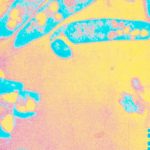Link to Pubmed [PMID] – 19198877
Med. Microbiol. Immunol. 2009 May;198(2):69-77
Buruli ulcer disease (BUD), caused by Mycobacterium ulcerans, is a neglected bacterial infection of the poor in remote rural areas, mostly affecting children. BUD is a mutilating disease leading to severe disability; it is the third most common mycobacterial infection in immunocompetent people after tuberculosis and leprosy. It is most endemic in West Africa, but cases have been reported from more than 30 countries. Treatment with antibiotics is possible, long-lasting and requires injections; there are cases of treatment failures, and the disease is prone to resistance. A vaccine against M. ulcerans would protect persons at risk in highly endemic areas, and could be used as a therapeutic vaccine to shorten the duration of treatment and prevent relapses. There is considerable evidence supporting the notion that generation of a vaccine is feasible. This article reviews the present state of the art with special emphasis on the immunology of the infection and the prospects for development of a vaccine.

